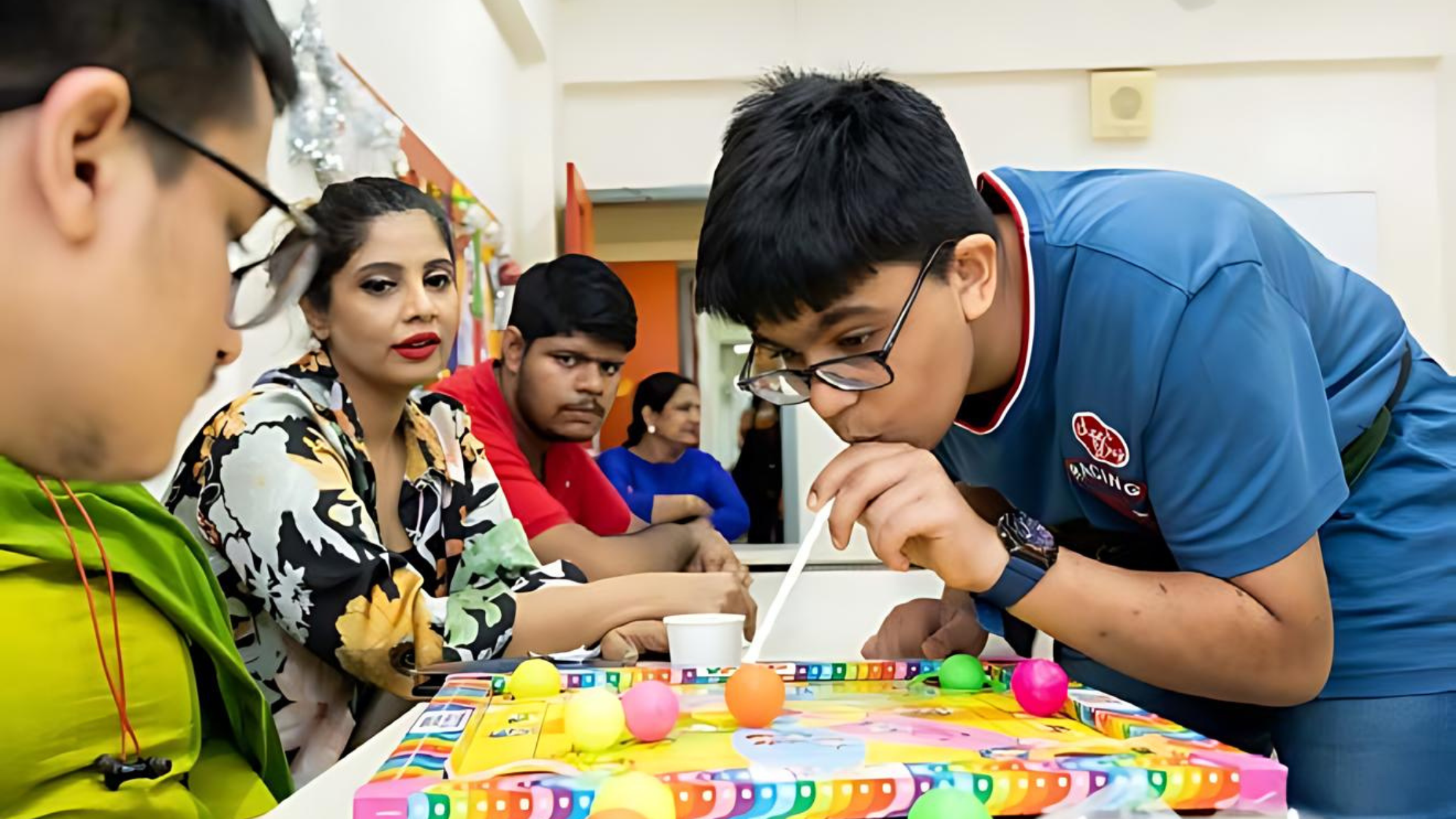

In the dynamic landscape of education, one of the most critical challenges educators face is providing support to students with emotional and behavioural disorders. These students often encounter obstacles that hinder their academic progress and social development. However, with tailored interventions and a compassionate approach, schools can play a fundamental role in fostering an environment that nurtures both, academic and emotional growth.
“Behaviour is the language of unmet needs”
- By Dr Karyn Purvis
Emotional and behavioural disorders may manifest in various forms, including anxiety, depression, aggression, defiance, and attention-deficit/hyperactivity disorder (ADHD), among others. These disorders encompass a broad spectrum of challenges that impact a student's ability to regulate emotions, interact with peers, and engage in learning activities effectively.
Creating a safe and inclusive
atmosphere is essential for students with emotional and behavioural disorders.
This begins with promoting positive relationships among students, teachers, and
support staff. Teachers can implement strategies such as morning check-ins,
classroom meetings, and peer support initiatives to cultivate a sense of
belonging.
Supporting students with
Emotional and Behavioural Disorders requires a multidimensional approach that
acknowledges the complexity of their needs and challenges. Teachers may
encounter various obstacles, such as limited resources, time constraints and resistance
to change. The stigma associated with the term inclusion, “every child matters,
but only if they behave well”, is another challenge in inclusive schools. A survey shows that 62% of teachers worry that they are spending more
time dealing with the students' emotional needs rather than teaching.
While there are teachers who are ready to extend their support in whatever way they can, but they don’t feel they’re equipped well enough.
TABIS provides the best support to students with emotional and behavioural needs. The stakeholders at TABIS include a team of professional therapists, and guidance counselors, mentored under a medical director, special educators, and parents.
Tailored interventions play a crucial role in supporting students with emotional and behavioural needs. These plans outline the student's specific needs, goals, accommodations, and interventions customised to create a conducive environment and address their unique challenges. Collaborating with parents, teachers at TABIS, consulting other stakeholders design effective IEPs, that provide comprehensive support for students with emotional and behavioural needs.
Positive Behaviour Support is a proactive approach used at TABIS to manage behaviour that focuses on teaching and reinforcing positive behaviours while minimizing negative ones. This approach involves identifying the underlying causes of challenging behaviours and implementing strategies to address them effectively. The strategies include teaching social skills, using visual supports, and providing rewards for desired behaviours.
At TABIS, we also construct Social and Emotional Learning Plans to promote students' social and emotional development, including self-awareness, self-management, social awareness, relationship skills, and responsible decision-making. Integrating social and emotional learning into the curriculum helps students with emotional and behavioural disorders, develop essential life skills, improve interpersonal relationships, and cope with stress and adversity more effectively, at the same time, contributing to a positive and empathetic school culture.
FBAs are systematic assessments used to identify the function or purpose of a student's challenging behaviour. By understanding the underlying motives behind these behaviours, teachers and therapists at TABIS develop targeted interventions that address the root causes and promote positive alternatives. FBAs involve collecting data through observations and feedback, analyzing patterns, and collaborating with relevant stakeholders to develop effective behaviour support plans.
Collaborative problem-solving at TABIS involves fostering partnerships among educators, students, parents, and other mental health professionals to address the complex needs of students with motional and Behavioural Disorders. By working together, stakeholders share insights, leverage resources, and develop holistic approaches to support student success. Collaboration enhances communication, promotes empathy, and fosters a supportive community dedicated to meeting the diverse needs of all students.
Equipping teachers with the knowledge and skills to support students with Emotional and Behavioural Disorders is of utmost importance. Professional development opportunities, workshops, and ongoing training sessions at TABIS enhance educators' understanding of different disorders and effective strategies for managing classroom dynamics. This, in turn, creates a more inclusive and empathetic learning environment at TABIS.
Recognizing and celebrating the
achievements of students with Emotional and Behavioural Disorders is essential
for building their self-esteem. At TABIS, small victories are recognised, and
students are encouraged to take pride in their progress. This positive
reinforcement helps create a sense of accomplishment and motivation to continue
overcoming challenges.
Supporting students with
emotional and behavioural disorders requires a collaborative and proactive
approach that prioritizes individualized support, positive reinforcement,
social-emotional learning, and effective behaviour management strategies. By
implementing evidence-based interventions and fostering a culture of inclusion
and acceptance, schools can create an environment where all students can thrive
academically, socially, and emotionally. As educators, it is our collective
responsibility to advocate for the rights and well-being of students with
Emotional and Behavioural Disorders and empower them to reach their full
potential. Through compassion, understanding, and dedication, we can make a
profound difference in the lives of these students and help them succeed in
school and beyond.